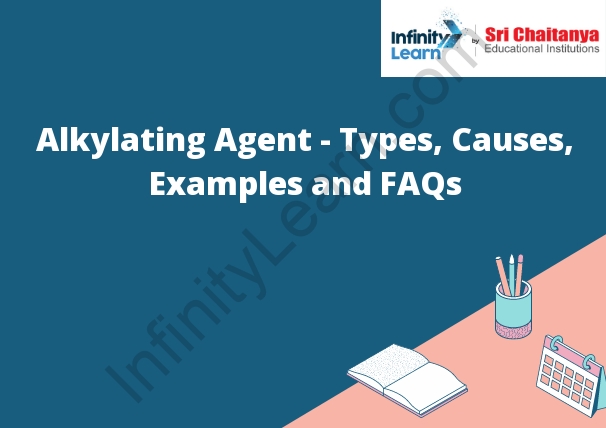Table of Contents
What is an Alkylating Agent?
An alkylating agent is a type of chemical compound that adds an alkyl group, such as a methyl or ethyl group, to another compound. These agents are used in many industries, including pharmaceuticals, agriculture, and manufacturing. They can be used to alter the chemical and physical properties of the target compound, and are important in the synthesis of many drugs and other compounds.

Types of Alkylating Agent:
Alkylating agents are a class of chemical compounds that can add an alkyl group to a molecule. These agents are used in chemotherapy to treat cancer because they can damage DNA and prevent cancer cells from dividing. There are several types of alkylating agents, including:
- Nitrogen mustards: Nitrogen mustards are one of the most common types of alkylating agents used in chemotherapy. They were first used in the 1940s to treat lymphomas and are still used today to treat several types of cancer. Examples include cyclophosphamide, melphalan, and chlorambucil.
- Alkyl sulfonates: Alkyl sulfonates are another type of alkylating agent that are used in chemotherapy. They work by reacting with DNA and preventing cancer cells from dividing. Examples include busulfan and treosulfan.
- Ethylenimines and methylmelamines: Ethylenimines and methylmelamines are two related types of alkylating agents that are used to treat cancer. They work by adding an alkyl group to DNA, which can cause damage and prevent cell division. Examples include thiotepa, altretamine, and hexamethylmelamine.
- Triazines: Triazines are a type of alkylating agent that are used to treat cancer. They work by reacting with DNA and preventing cell division. Examples include temozolomide and dacarbazine.
- Platinum-containing compounds: Platinum-containing compounds are a class of alkylating agents that are used to treat several types of cancer. They work by binding to DNA and forming cross-links, which can prevent cell division. Examples include cisplatin, carboplatin, and oxaliplatin.
- There are many types of alkylating agents, but some of the most common include:
• Cyclophosphamide
• Mechlorethamine
• Chlorambucil
• Melphalan
• Busulfan
Cause of Alkylating Agents:
Alkylating agents are synthetic or naturally occurring compounds that can add an alkyl group to DNA molecules. They work by attaching to the DNA molecule and chemically altering it, which can cause the DNA strand to break or create abnormal bases. This damage can interfere with DNA replication and ultimately prevent cancer cells from dividing, leading to cell death.
Alkylating agents can also affect other cellular components, such as proteins and lipids. They can cause DNA cross-linking, which can interfere with the ability of the DNA molecule to function properly. Alkylating agents can also induce mutations in DNA, leading to genetic instability and potentially causing cancer cells to die or lose their ability to divide.
The mechanism of action of alkylating agents makes them effective against a variety of cancers, including leukemia, lymphoma, and solid tumors. However, their nonspecificity can also lead to toxicity and damage to normal cells in the body, resulting in side effects such as nausea, vomiting, and anemia.
Examples of Alkylating Agents
Some examples of alkylating agents are nitrogen mustards, mechlorethamine, cyclophosphamide, chlorambucil, and melphalan. These agents work by attaching alkyl groups to DNA, which can prevent replication and cell division. This can lead to cell death and tumor suppression.
FAQs regarding Alkylating Agents:
Question 1: What are alkylating agents?
Answer 1: Alkylating agents are a class of chemical compounds that can add an alkyl group to a molecule. They are commonly used in chemotherapy to treat cancer by damaging DNA and preventing cancer cells from dividing.
Question 2: How do alkylating agents work?
Answer 2: Alkylating agents work by adding an alkyl group to DNA, which can cause damage and prevent cell division. This damage can lead to the death of cancer cells.
Question 3: What are the side effects of alkylating agents?
Answer 3: Alkylating agents can cause several side effects, including nausea, vomiting, hair loss, increased risk of infection, and anemia. They can also cause damage to healthy cells in the body.
Question 4: How are alkylating agents administered?
Answer 4: Alkylating agents are usually administered intravenously, but they can also be taken orally or applied topically.






